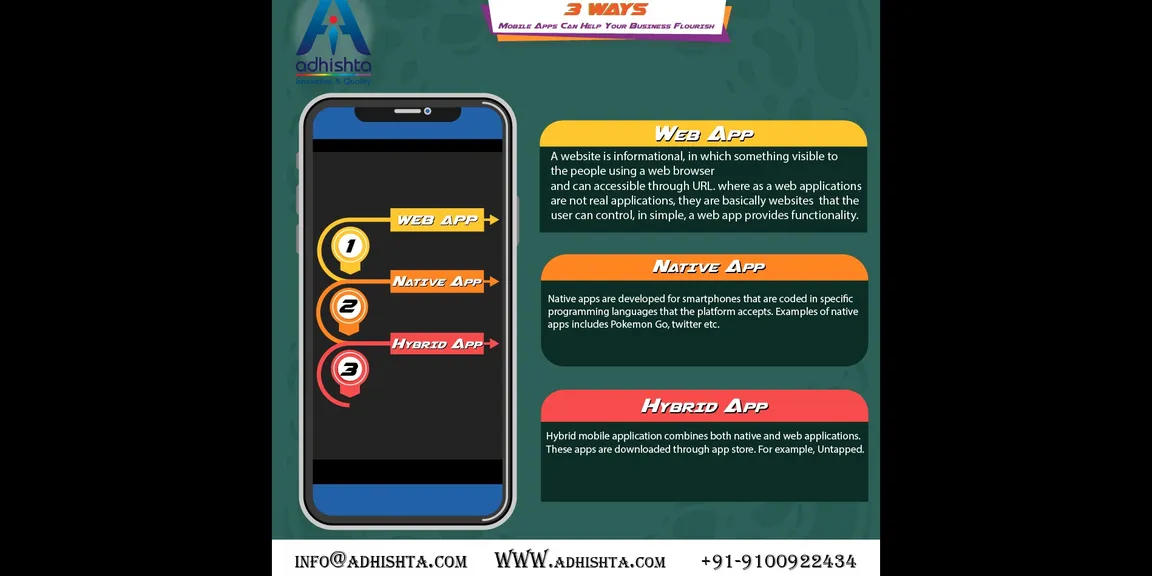

A guide to mobile app development: Web vs. Native vs. Hybrid
We create Android, iPhone and mobile app development services in Hyderabad. We Develop updated mobile apps for your requirements with our expert App Developers.
Mobile app development is becoming more important for many startups to improve their business and attract more customers. When you are looking into developing a mobile application, there are a variety of factors need to consider like which application should we build? Should we build native app, web app or hybrid app?
So, for those who are looking to build a mobile app for your business, we at Adhishta provides the differences between web, native and hybrid apps, so that you can decide which approach will be the right one for your app.
Web app
There is a difference between Web application and website. A website is informational, in which something visible to the people using a web browser and can access through URL. whereas web applications are not real applications, they are basically websites that the user can control, in simple, a web app provides functionality.
For instance, Wikipedia is a website, Facebook is a web app.
How are web apps build?
Usually, web apps are built in the combination of the client-side script (HTML, JavaScript etc) and server-side script (ASP, PHP etc). Web apps are not downloaded and installed because they are operated within browsers.
Advantages of using web apps:
• They are easy to build and maintain
• They send push notifications
• They load in browsers and don’t take space or memory on the user’s device
However, there is a huge disadvantage where web apps can run only on Google Chrome, which means iOS users cannot use this type of applications.
Native App:
Native apps are developed for smartphones that are coded in specific programming languages that the platform accepts. Examples of native apps include Pokemon Go, twitter etc.
How Are Native apps build?
They built using Objective C for iOS or Java for Android OS.
Advantages:
Most of the companies will invest in native mobile app development because:
• Most reliable and most responsive
• User-friendly for all platforms
• It depends on the functionality
Though native apps are fast and responsive there are some disadvantages like
They require different languages and are most expensive and take more time to build.
Hybrid App:
The hybrid mobile application combines both native and web applications.These apps are downloaded from an app store. For example, Untapped.
How are hybrid apps build?
Like web apps, hybrid apps built with javascript, HTML, CSS and loads the code using Webview.
Advantages:
• Easier to build, where it can build on HTML/CSS/Javascript
• Faster and Cheaper than a native app
• No browser is needed
But there are some disadvantages like
• Less interactive than natives
• Lacks graphics processing capabilities
So, Which approach is best?
Before developing an application, you need to consider following factors like
• App speed
• The complexity of the features
• User experience
• Cost-effective
In short, native and hybrid apps are installed in app stores, whereas web apps are mobile-optimized web pages.
Which approach is better to choose?
Finally, if you plan to build a mobile app, we recommend native app development, because native apps are suited for those who want to create a game or media based application. If you want to build an app to save time and money, then choose a Hybrid app. Else, if you are not concerned about the user experience, you can choose web app.
So, now you have a better knowledge of choosing the best approach to build your application.





